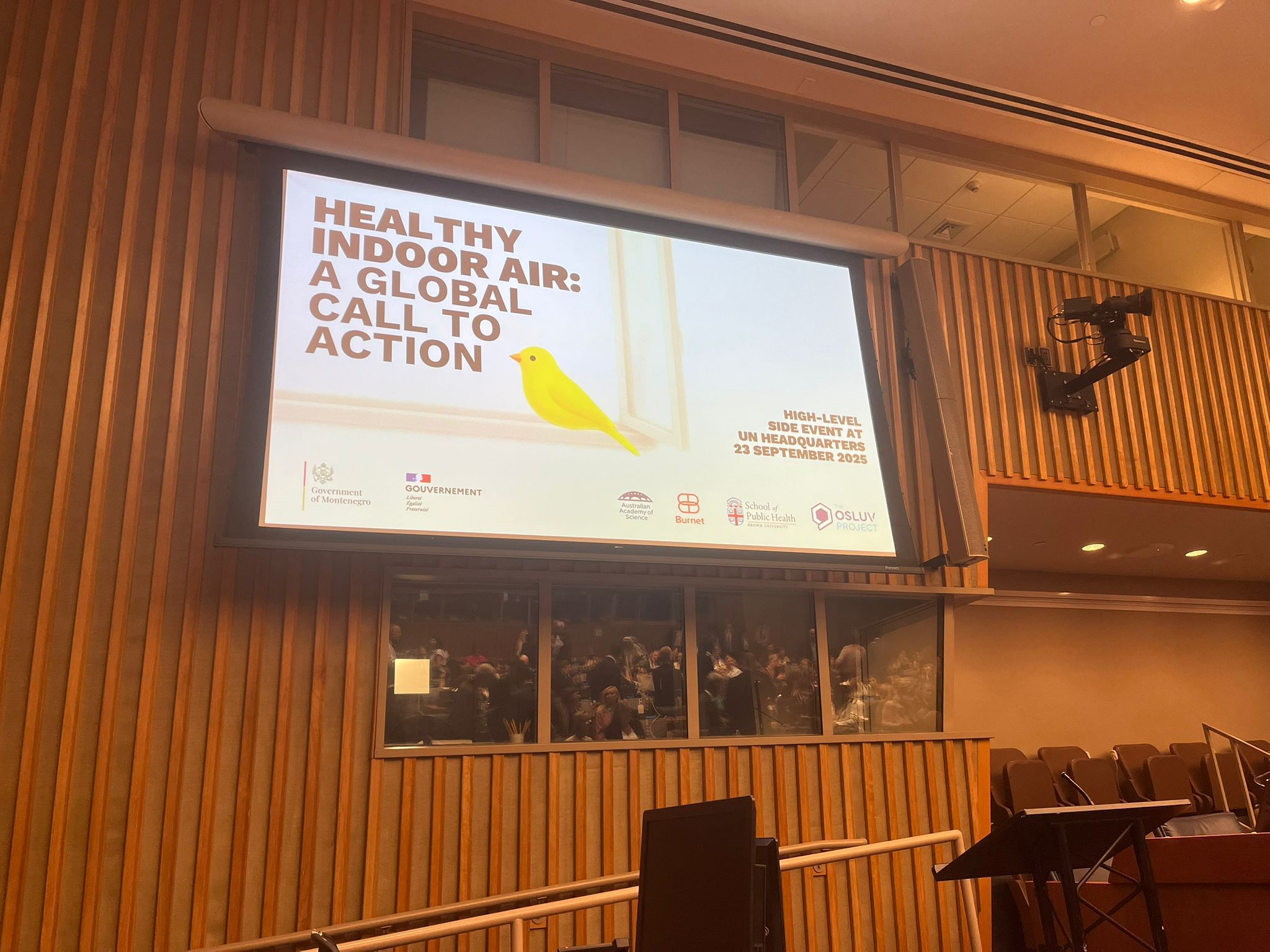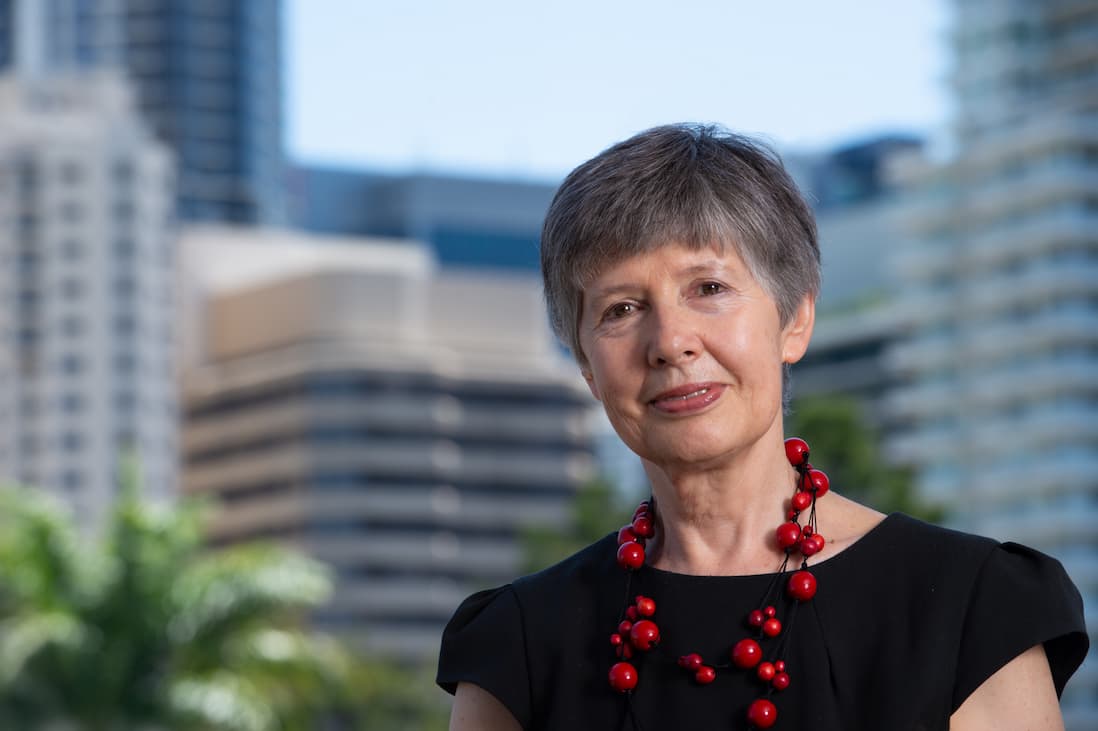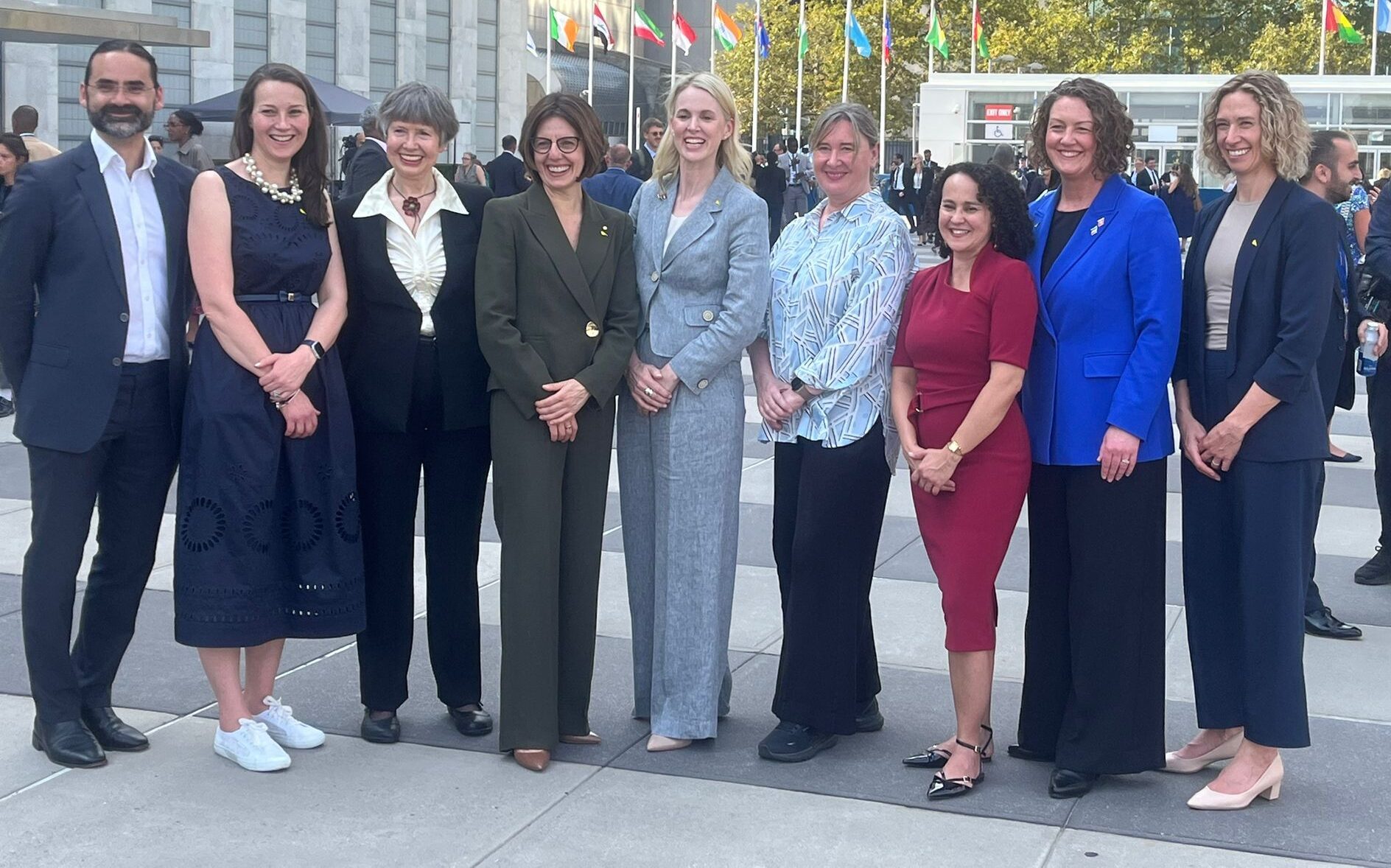Australia leads IAQ action at Climate Week
The UN Climate Week in New York has seen the launch of two new initiatives to drive improvements in indoor air quality: a Global Commission on Healthy Indoor Air and a Global Pledge for Healthy Indoor Air.

Global leaders, innovators, and communities have gathered in New York City for Climate Week NYC and the United Nations General Assembly. The focus is on measures to to accelerate the transition to a cleaner, fairer future, and although there will be much attention on countries announcing their new emissions targets, another topic has also come to the fore: indoor air quality.
In a major step toward safeguarding public health and wellbeing, the International WELL Building Institute (IWBI) – alongside nearly 170 global leaders from public health, academia, civil society, building science, real estate and industry representing over 30 countries – has announced the formation of the Global Commission on Healthy Indoor Air.
The initiative unites global leaders to address one of today’s most overlooked public health challenges: indoor air quality (IAQ).
The commission notes that indoor air pollution represents a major public health crisis, not only accounting for more than three million premature deaths each year, but also exacerbating a wide range of chronic and acute health conditions, from respiratory illness and cardiovascular disease to cognitive decline and impaired learning outcomes.
Despite these risks and the fact that people spend about 90% of their lives indoors, progress on IAQ has lagged behind advances in other environmental issues, including outdoor air protections. The new commission seeks to address this by charting a globally coordinated pathway to healthier indoor environments.
Changemakers from Australia
The commission features a strong contingent from Australia, including Distinguished Professor Lidia Morawska from QUT and Plum Stone, Founder and CEO of the Safer Air Project, both of whom are serving as co-chairs of the commission. The Australian HVAC&R industry is also represented through AIRAH and key suppliers.
“I am proud to co-chair this unparalleled group, helping unite leaders from medicine, science, policy, design and industry, including former US Surgeons General, scientists and researchers of leading universities, and CEOs, CMOs and CSOs from top organisations across nearly 30 countries in the full spectrum of health and the built environment,” says Professor Morawska.


“I’ve spent a career building the science behind solutions to improve indoor air, and the evidence is clear – we know the solutions, and we have the technologies.”
“Now, through the Global Commission on Healthy Indoor Air, we are charting the path and building the awareness to bring those solutions into our homes, workplaces and every type of building, so that people everywhere can finally breathe free in all the places and spaces where life happens.”
Distinguished Professor Lidia Morawska
Global collaboration
IWBI President and CEO Rachel Hodgdon says the initiative unites global IAQ leaders like never before.
“This extraordinary first-of-its-kind group brings together chief executives, chief medical and sustainability officers, world-renowned scientists, public health leaders and built environment innovators from dozens of countries,” Hodgdon says.
“Uniting to give a voice to this critical public health imperative, the Global Commission on Healthy Indoor Air is positioned to chart both a global framework for action alongside national blueprints and deliver the sustained drumbeat of attention and awareness necessary to elevate this issue worldwide.”
By advancing IAQ, the commission also aims to reinforce the foundation of the larger healthy building movement, expanding its impact on how spaces and places are designed to nurture health.
“Indoor air quality is often the front door to the healthy building movement, reminding us that our wellbeing is shaped not only by the air we breathe, but also by the water we drink, the light we see and the ways our spaces are designed to help us recover, perform and live our best lives.”
IWBI President and CEO Rachel Hodgdon
The commission’s goals
The Global Commission on Healthy Indoor Air aims to:
- Elevate a global call to action that places healthy indoor air at the forefront of public health and policy priorities
- Build global awareness by highlighting the urgent human and economic costs of unhealthy indoor air
- Establish a global framework for action that sets out clear prescriptions across the major pillars of market transformation, designed to accelerate coordinated progress and drive measurable impact
- Recognise the unique needs and opportunities of different regions by catalysing the development of tailored national blueprints, country-specific recommendations and solutions created in partnership with local stakeholders to ensure collaboration, relevance, adoption and impact
- Spur multi-sector investment aimed at accelerating the scaling up of solutions that are affordable, effective and equitable.
The commission will release its global framework for action by the end of 2026, while simultaneously supporting the development of national blueprints for healthy indoor air in countries in every region of the world, which will be published as they are completed.
World-first IAQ pledge
Another key IAQ initiative launched at Climate Week in New York was the Global Pledge for Healthy Indoor Air, led by the Australian Academy of Science and the Burnet Institute.
The global pledge, already signed by over 150 organisations, including AIRAH, is the first international effort to formally recognise clean indoor air as essential to health and wellbeing.
Chief Executive of the Australian Academy of Science, Anna-Maria Arabia OAM, says the academy is proud to collaborate with global leaders at the UN to galvanise global action on IAQ.
“The science of indoor air quality is well understood and the solutions to address poor air quality are available,” Arabia says. “Political leadership is required to prioritise action that will make every workplace safer and healthier, and that will better prepare Australians when bushfires and pandemics impact our country.
“If you don’t measure it, you can’t fix it. The collective cost of inaction in loss of health and productivity is in the billions in Australia alone.”
The Australian delegation to the UN event includes Distinguished Professor Lidia Morawska and Professor Bronwyn King AO, Special Advisor – Clean Air at Burnet Institute, who conceived the idea for the UN side event.


Professor King notes that although Australians spend 90% of their time indoors, schools, hospitals, workplaces and transport are not guaranteed to have clean, healthy air.
“In fact, indoor air is commonly found to be of poor quality, containing many hazards detrimental to health,” she says. “The good news is that practical solutions already exist. Uplifting indoor air quality offers an extraordinary opportunity to improve health for all.
“This event marks the first time the global indoor air community has convened at the United Nations, the rightful platform for such a crucial global issue that, if addressed, offers an extraordinary opportunity to improve health for all. Attention to indoor air quality is a gap in our public health frameworks. We need to close that gap.”
PREV
NEXT
Comments
Advertisements
Recent news
- Daikin launches turnkey refrigeration solution
- Mike Lenton retires from HydroChem
- Report forecasts skyrocketing energy use in Australian data centres
Latest events
- PSO to host focus groups at AIRAH Hobart Industry Night
- Huge attendance for 2026 ASHRAE Winter Conference
- Final call for 2026 ARBS Awards nominations
 Mark Vender
Mark Vender

Leave a Reply